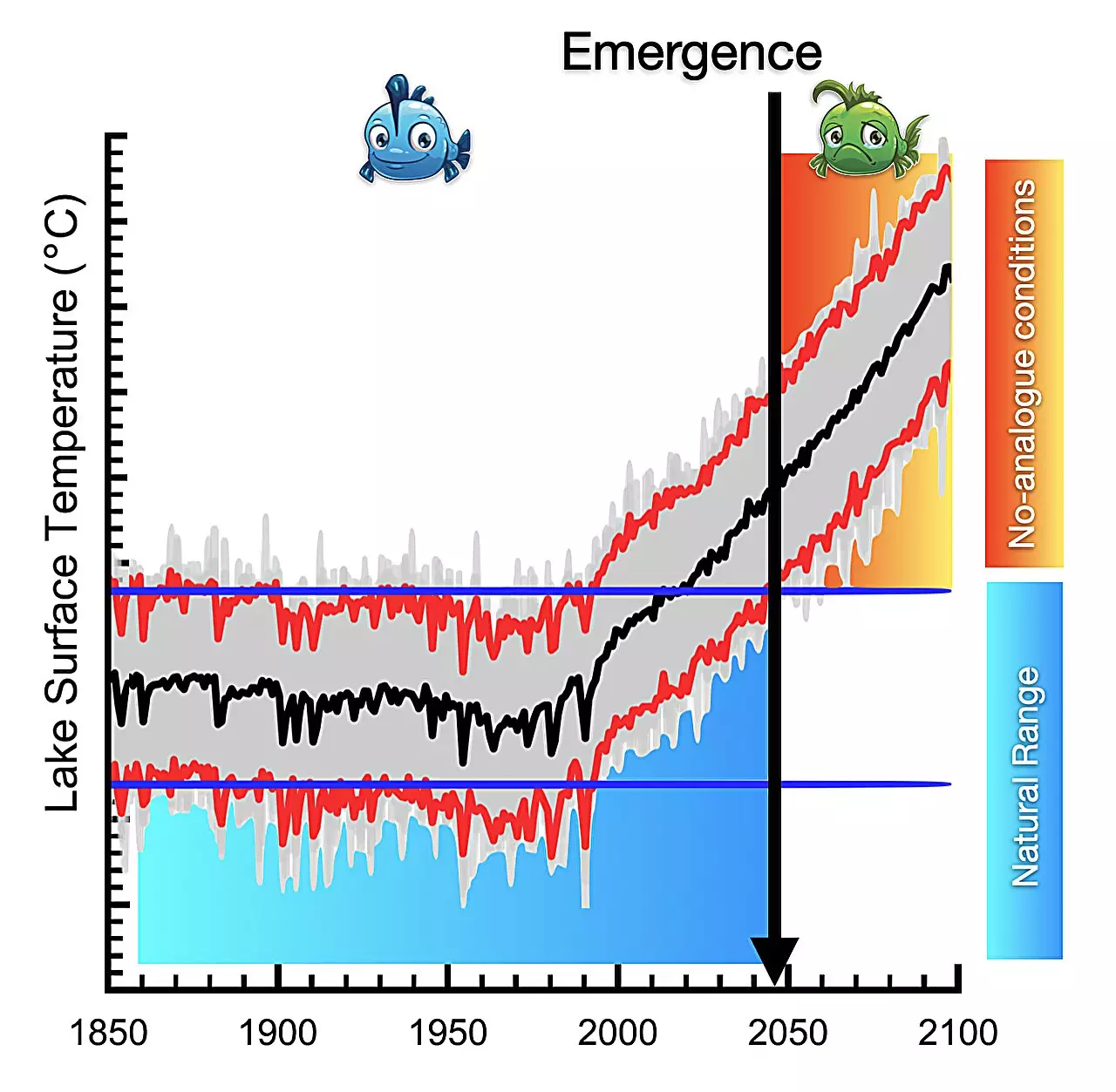Lakes are often overlooked but serve as vital ecological sanctuaries. They not only harbor a diverse spectrum of life but also elucidate crucial ecosystem services. From purifying water to providing habitats for myriad species, lakes play an irreplaceable role in maintaining ecological balance. However, these aquatic marvels are now grappling with a significant threat: escalating temperatures due to anthropogenic climate change. Recent findings from a transformative study in Nature Geoscience have uncovered alarming data, suggesting a future where lakes face unprecedented thermal changes that could wreak havoc on their biodiversity and ecological functions.
Groundbreaking Research Reveals Stark Predictions
The recent study conducted by a global consortium of limnologists and climate modelers leverages an innovative climate model — the Community Earth System Model version 2 — to project lake temperatures into the future against a backdrop of rising global temperatures. Spanning from 1850 to 2100, this modeling exercise is unique in its comprehensive integration of lake dynamics with atmospheric conditions. Unlike previous research that offered singular projections, this study employs an ensemble modeling technique consisting of 100 unique simulations. Each simulation interprets different natural climate variations while simultaneously incorporating the impacts of greenhouse gases. This multifaceted approach allows scientists to clearly delineate the degree to which human activity is distorting natural temperature norms.
Predicting ‘No-Analog’ Conditions: A Wake-Up Call
One of the most startling revelations from the research is the concept of ‘no-analog conditions’. This term refers to scenarios where lake temperatures exceed all historical bounds and create environments that have never been seen before. According to Dr. Lei Huang, the study’s lead author, if the current trajectory remains, lakes will inevitably breach these thresholds by the end of the century. What is particularly distressing is the global variance in timing; tropical lakes are expected to be the first to succumb to these alterations once global warming reaches approximately 2.4°C above pre-industrial levels. This finding is particularly heartbreaking considering the rich biodiversity found in these systems.
Understanding Subsurface Challenges
While surface warming is detrimental, the implications of subsurface temperature rises are even more severe. In contrast to surface-dwelling species that may have some capacity to migrate vertically to cooler, deeper waters, many lake organisms are less adaptable. The study reveals that rapid downward transmission of warm signals during mixing events in lakes poses a grave risk. As Dr. Iestyn Woolway suggests, high-latitude lakes, thanks to their stratification, may experience delays in these thermal shifts; unfortunately, this delay may not be extended indefinitely.
Implications on Ecosystems and Biodiversity
The ramifications of entering a ‘no-analog’ lake climate are profound and wide-reaching. Unlike terrestrial and marine species that might shift habitats in response to climate-induced changes, lake organisms often face significant barriers to migration. Thus, the risk of extinction for many species is magnified in this highly vulnerable environment. Prof. Axel Timmermann, a co-author of the study, underscores the urgency of these findings. The recognition of these vulnerable ecosystems grants us the opportunity – and responsibility – to adapt our strategies in climate adaptation and mitigation.
Confronting the Future: Action Needed Now
In light of these unsettling predictions, it is imperative that we not only acknowledge the potential for lakes to enter these extreme conditions but also actively engage in strategies for conservation and mitigation. Policymakers, scientists, and communities must unite to develop actionable plans that cherish and safeguard our lakes. Restoration efforts, pollution reduction strategies, and climate change mitigation practices should become high priorities, eliciting immediate action at every scale of governance.
The data resonates with an unwavering truth: if we do not urgently commit to addressing climate change, we risk losing not only lakes but also the irreplaceable biodiversity contained within them. The time to act is now.

